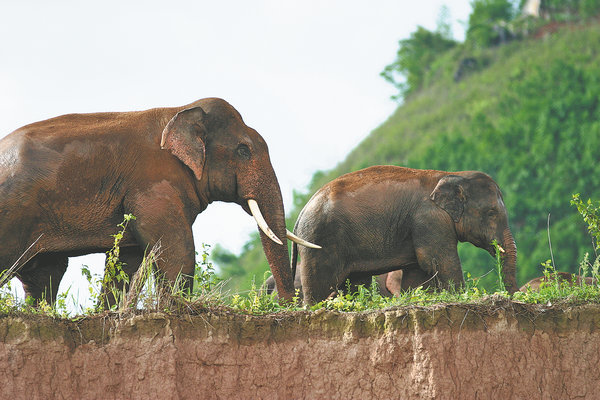

Bees and orchards nurture success through eco-friendly and profitable development, Xu Haoyu reports.
Locals in Daotangqing village, located on the edge of the Xishuangbanna National Nature Reserve, Southwest China's Yunnan province, have turned to keeping bees and growing eco-friendly fruit trees to improve income and strengthen resilience to damage caused by elephant grazing and a fall in the price of rubber, once their primary cash crop.
According to Yunnan Daily, in 1992, a wild elephant entered the Simao district of Pu'er city, around 100 kilometers north of the reserve, marking the first time in 16 years that wild Asian elephants had been spotted there. Later in 1995, a herd of five elephants arrived in the area and made it home — the herd has not left since 1996.
The appearance of the wild Asian elephants surprised people. Local residents went to see and feed the elephants as if they were attending a festival.
Until the 1990s, elephant herds and humans lived together in harmony. The Xishuangbanna herd initially kept to land that had been left vacant to recover after a round of planting, feeding on freely-growing herbs on the ground.
However, it didn't take long for people to realize that the appearance of elephants was not always a blessing.